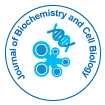Phytoplankton Lipid Metabolism
Received Date: Jul 10, 2023 / Published Date: Jul 03, 2024
Abstract
Phytoplankton lipid metabolism is a vital process that influences the ecological and biogeochemical dynamics of marine ecosystems. Lipids in phytoplankton serve as energy stores, structural components and signaling molecules, playing critical roles in their growth, survival and interactions with the environment. This abstract provides an overview of the current understanding of phytoplankton lipid metabolism, highlighting its significance and implications. Phytoplankton produces and accumulates lipids through complex biochemical pathways, including lipid biosynthesis, desaturation, peroxidation and transport. The composition and quantity of lipids vary among different phytoplankton species, influencing their buoyancy, nutritional quality and interactions with higher trophic levels. Lipids also act as signaling molecules, regulating physiological processes and mediating responses to environmental cues. Lipid metabolism in phytoplankton is tightly regulated in response to environmental factors such as light intensity, nutrient availability, temperature, and carbon dioxide levels. Nutrient limitation triggers adjustments in lipid synthesis, composition, and turnover rates, enabling phytoplankton to optimize energy utilization and survival under challenging conditions. Moreover, lipid metabolism in phytoplankton contributes to the global carbon cycle by sequestering atmospheric carbon dioxide and influencing carbon export to deeper ocean layers.
Keywords: Lipid catabolism; Lipid transport; Biosynthesis; Protein interactions; Lipidomics
Citation: Riley R (2024) Phytoplankton Lipid Metabolism. J Biochem Cell Biol 7:256.
Copyright: © 2024 Riley R. This is an open-access article distributed under the terms of the Creative Commons Attribution License, which permits unrestricted use, distribution and reproduction in any medium, provided the original author and source are credited.
Share This Article
Recommended Journals
Open Access Journals
Article Usage
- Total views: 561
- [From(publication date): 0-2024 - Apr 05, 2025]
- Breakdown by view type
- HTML page views: 370
- PDF downloads: 191
